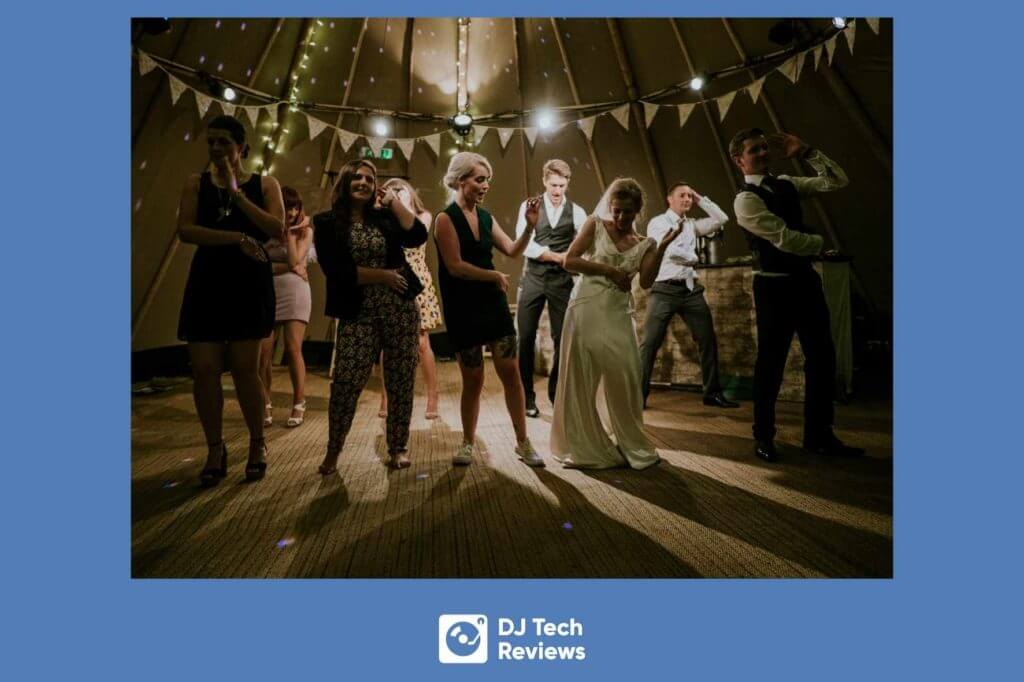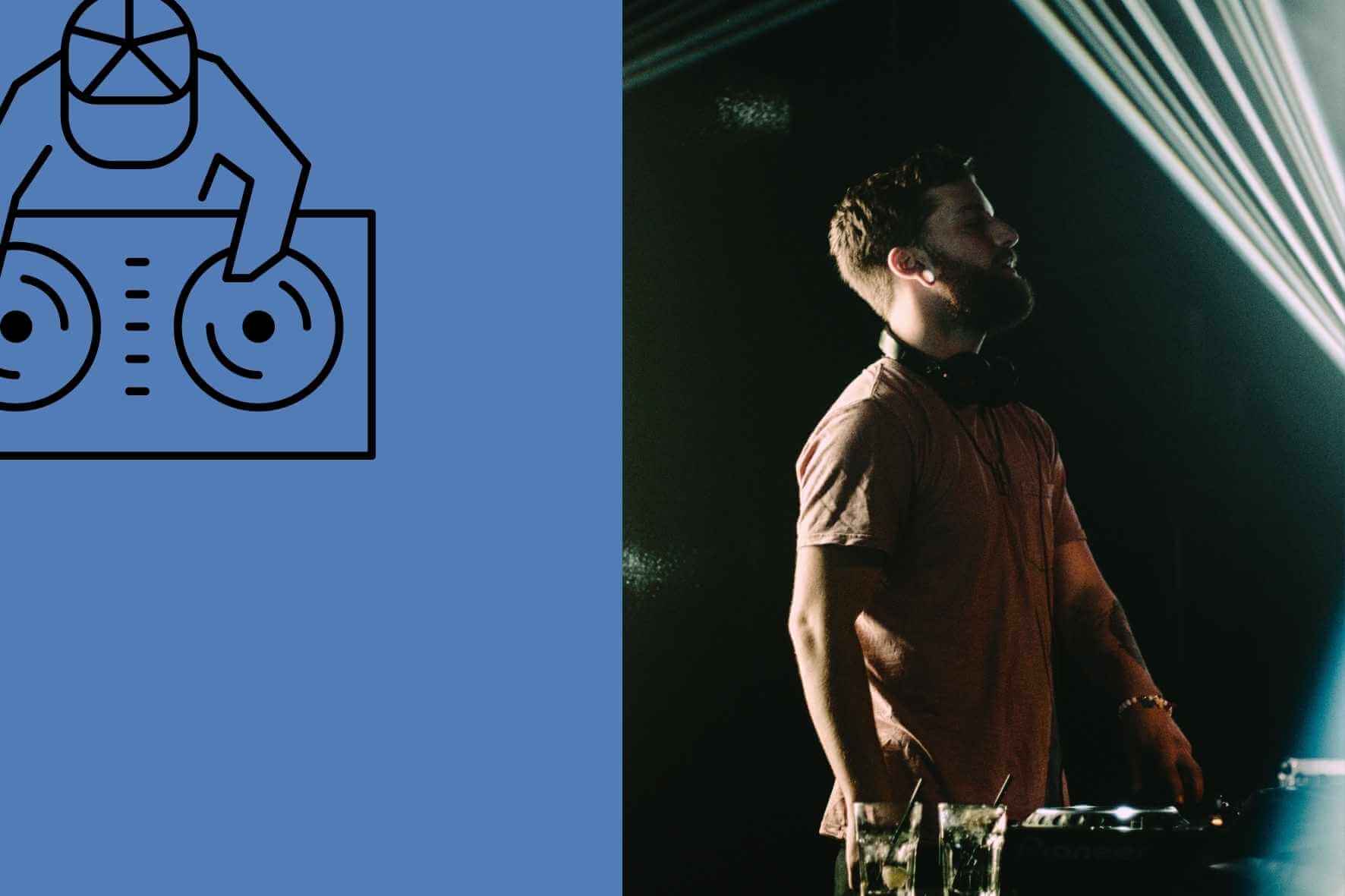Have you ever thought to yourself, “What does DJ stand for?”
Whether you’ve ever gone to a club, been invited to a wedding, or watched any sitcom or tv show ever, you’ve probably seen or come across a DJ before.
You’ve definitely been on a dance floor being entertained by a DJ, that’s for sure.
And, while most of us all know that, very few of us know what the term stands for. Here, we’ll not only break down what DJ stands for, but we’ll also get into the different types of DJing out there.
So let’s find out, what does DJ stand for?
What Does DJ Stand for? (in short)
Simply put, the phrase DJ. Is short for two words. Disc Jockey. DJs play recorded music to people at a range of events.
What is a DJ?
Like most terms and phrases out there – from R&B, to “Hip Hop”, to even “Dubstep” – “DJ” has a meaning that is derived particularly from the music world.
Ultimately, a DJ is someone that plays recorded music at an event or party. This is why the majority of people that do have some idea about it will simply state that it means “Disc Jockey”.

Read this next: How Do DJs Interact With Crowds?
Types Of DJs
Not only is being a DJ more than just what a Disc Jockey does but there are also several different kinds of DJing out there. Below, we’ll go over the differences between each type o DJ as well as how they vary.
1. Club & Bar DJs
Arguably the most popular form of DJing, the term “Club & Bar DJs” specifically references DJs that perform primarily in various clubs and bars.
This can vary from standard nightclubs to different types of bars, to even more adult-themed electronic music clubs and venues. Club DJs are, without a doubt, the most popular type of DJ and are often mistaken by many to be the only type of DJ.
In addition to being the most popular, Club DJs are also generally the more experienced and capable of playing records in a party environment. This is because they are often required to perform at a high level consistently in front of a crowd.
As a result, they are the most “up-to-date” when it comes to mixing tracks and various other DJ techniques (such as scratching, and EQ leveling).
This high level of performance also makes Club DJs one of the more difficult types to stay in and excel in. Because most venues only want the best available while also often requiring daily performances, it can be difficult for starting DJs to do well in this area.

Read this next: Djing Guide (How To Start DJing from Your Bedroom)
2. Event DJs
Somewhat similar to Club DJs, Event DJs primarily specialize in performing at high-level or corporate setting events.
For example, event DJs are often seen playing music at weddings, anniversaries, birthdays, high-end fashion shows, corporate events or high-end parties (Christmas, New Year’s, etc.), and many other private events.
3. Touring DJs
Touring DJs are the more popular section of DJs who are booked to perform at high-level events all around the world. These DJs are highly specialized in the type of music genres they play out as well as the types of venues they perform in.
Generally, touring DJs are famous, and create music meaning that their performance isn’t strictly mixing or altering recorded music tracks.
Because they are a sort of specialized version of club DJs, a touring disc jockey is always on the move.
You’ll need to make a name for yourself before people come specifically to see you perform.
Such DJs include the likes of Carl Cox, Fat Boy Slim, Tiesto, etc.

Read this next: How To DJ With A Laptop In 3 Easy Steps
4. Mobile DJs
A mobile disc jockey is generally brought on to play and perform recorded music at small events like school dances, birthday parties, weddings, or other private celebrations.
They can be expected to put together current pre-agreed playlists, be musically very diverse and provide their own DJ equipment.
5. Radio DJs
Lastly, Radio station DJs are DJs that perform over the radio station’s airwaves, either as radio personalities or as a dedicated disc jockey.
Radio DJs can either be on their own or as part of a duo or group depending on the nature of the segment.
These radio DJ shows are normally light-hearted events where the radio DJs interact with one another, read different news stories, and can even speak with some of their listeners.
Some shows can be constructed around a musical set with a small amount of conversation over the DJ set from the radio DJs.

Read this next: How To Become A Radio DJ (Our How to Be a Radio DJ Quick-Tip Guide)
What Does DJ Stand For? Summary
As you can see, DJs don’t just play music at the local club.
Of course, while that is a very popular activity, it is only a small segment of what it means to DJ.
By understanding the different types of DJing out there, you can see which sounds more interesting to you and which type of DJ you’d want to be.



